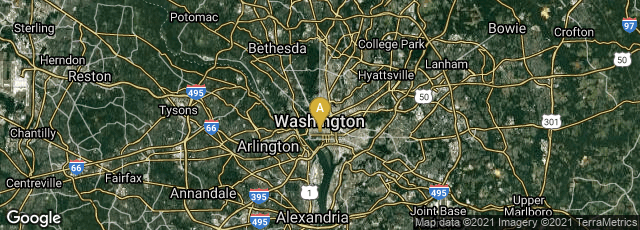

A: Washington, District of Columbia, United States
The Internet Corporation for Assigned Names and Numbers (ICANN) voted on October 30, 2009 to allow Web addresses written completely in Chinese, Arabic, Korean and other languages using non-Latin alphabets.
"The decision is a 'historic move toward the internationalization of the Internet,' said Rod Beckstrom, Icann’s president and chief executive. 'We just made the Internet much more accessible to millions of people in regions such as Asia, the Middle East and Russia.'
"This change affects domain names — anything that comes after the dot, including .com, .cn or .jp. Domain names have been limited to 37 characters — 26 Latin letters, 10 digits and a hyphen. But starting next year, domain names can consist of characters in any language. In some Web addresses, non-Latin scripts are already used in the portion before the dot. Thus, Icann’s decision Friday makes it possible, for the first time, to write an entire Internet address in a non-Latin alphabet.
"Initially, the new naming system will affect only Web addresses with 'country codes,' the designators at the end of an address name, like .kr (for Korea) or .ru (for Russia). But eventually, it will be expanded to all types of Internet address names, Icann said.
"Some security experts have warned that allowing internationalized domain names in languages like Arabic, Russian and Chinese could make it more difficult to fight cyberattacks, including malicious redirects and hacking. But Icann said it was ready for the challenge. 'I do not believe that there would be any appreciable difference,' Mr. Beckstrom said in an interview. 'Yes, maybe some additional potential but at the same time, some new security benefits may come too. If you look at the global set of cybersecurity issues, I don’t see this as any significant new threat if you look at it on an isolated basis.'
"The decision, reached after years of testing and debate, clears the way for Icann to begin accepting applications for non-Latin domain names Nov. 16. People will start seeing them in use around mid-2010, particularly in Arabic, Chinese and other scripts in which demand for the new 'internationalized' domain name system has been among the strongest, Icann officials say. Internet addresses in non-Latin scripts could lead to a sharp increase in the number of global Internet users, eventually allowing people around the globe to navigate much of the online world using their native language scripts, they said.
"This is a boon especially for users who find it cumbersome to type in Latin characters to access Web pages. Of the 1.6 billion Internet users worldwide, more than half use languages that have scripts that are not based on the Latin alphabet." (http://www.nytimes.com/2009/10/31/technology/31net.html?hp)